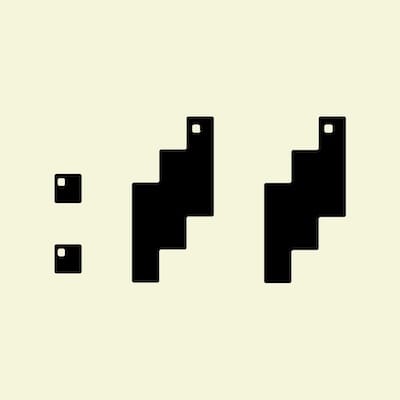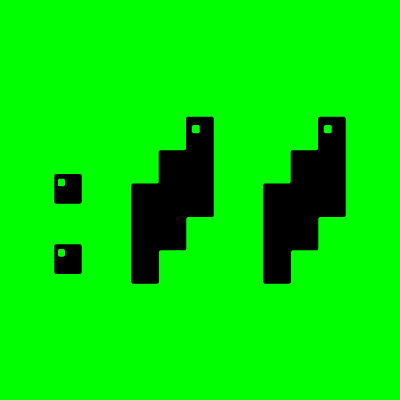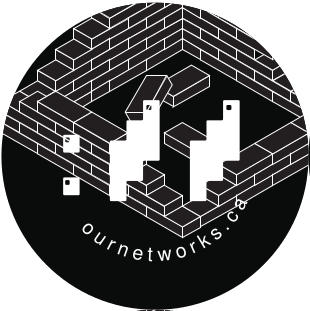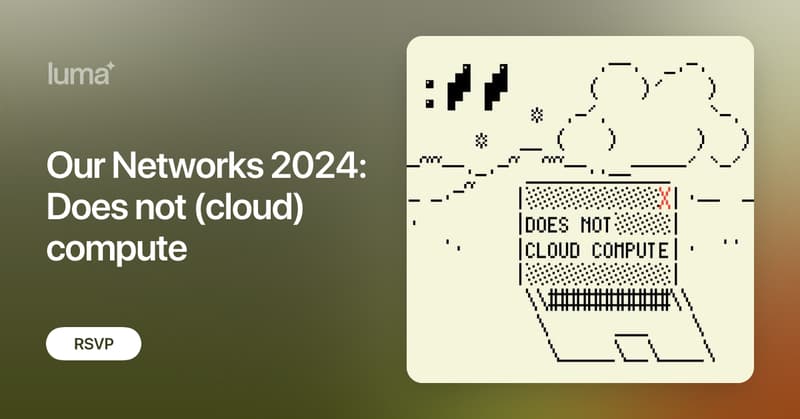Our Networks 2024 organizer interview
An interview with the Our Networks team for this year's Does (Not) Cloud Compute theme. Join us July 27th, 2024.

Our Networks is a conference about how network infrastructures impact our social lives, and has been running since 2017 mostly out of Toronto. For the first time, on July 27 2024, Our Networks will take place in Vancouver, capping off LOCALHOST.
I sat down with the organizers of Our Networks to find out what kind of insights and provocations this year's event will bring, especially in the context of the Internet Engineering Task Force meeting in Vancouver.

Learn more and Register at ournetworks.ca
The Organizers
 |
Garry Ingwebsite: https://garrying.com |
 |
Dawn Walkerwebsite: https://dcwalker.ca |

The theme for this year is "Does not (cloud) compute" and you provide some provocations for what that might be. I'm curious – How are you thinking about collaboration and presence in a world where network connectivity is optional?
Garry Ing: Pointing to cultural references, the phrase “Does not compute”, and variations of it, is an expression of frustration and inability to fully reconcile a particular command or situation—it’s been popularized in television, film, and literature. In some ways, I believe, it’s a shorthand to dramatize computation through an anthropomorphic lens I think this phrase is fitting for the moment we are living in which much of our connected experiences are mediated through near-ubiquitous computing and connectivity. To “not (cloud) compute” is a sort of reflection of this state; a frustration and exhaustion of continuous connectivity. Where do we go from here as we encounter the limits of the cloud metaphor and planetary ecosystems? In the context of the event, we think this means a revision of what software looks and feels like, the kinds of protocols that compose the “stack”, and purposeful reflection of the cultural/social/political frames technology operates in.
Dawn Walker: It feels like we are at a moment where the current model of high-bandwidth, always-connected big tech experiences on the web and internet is breaking down. That model had a hegemonic quality, meaning there was one dominant narrative about what tech looked looked like and how it could be built. Now it feels like that narrative is up for grabs again, we referenced Robin Sloan's article on new avenues which captures that. With all that operating in the wings, we can find those other models of collaboration in a few ways:
- look to already existing practices elsewhere
- look at what things were like in the not too distant past
- look at opportunities to make something new

You have run three of the previous Our Networks in Toronto, and two online. How do you think this premiere Vancouver edition will be different?
DW: Excited to be in Vancouver! We've talked about what it means to be responsive to our locale. Our speakers this year are all from the PNW, so we see this as a celebration of what are people already doing here. Coming out of the early pandemic there were some life changes for Our Networks organizers. We said goodbyes to some and one of us (me) now lives in Vancouver.
GI: There’s a kind of familiarity with hosting the event in Toronto that is definitely different this time around from both an organizing and participant point-of-view. I haven’t spent a great deal of time in Vancouver so I’m excited to discover new aspects of the city, connect with people and organizations I don’t often check-in with. The last time I visited was in 2011 which feels like ancient history at this point. I’m really curious to understand the city both geographically and socially. In some ways this edition reminds me of the first year, 2017. A one-day event that brought together people from across city with a common thread.
DW: Though it's a little scary to do something in person again: it's harder, everything takes a different amount of time, and everything costs more.

Can you share some examples of the creative experiments with protocols and networked spaces that emerged from previous events?
DW: We've tried some things as organizers: Hosting a livestream over IPFS and HTTPS (thanks Yurko, Hank, Elon, and Ben), creating a p2party chat space for our 2020 edition (thanks Mauve) and larping an event using MediaWiki (thanks Sarah).
GI: Other moments that come to mind:
- Marie Otsuka and Lauren Traugott-Campbell's talk about the process of designing a web experience on a self-hosted, solar-powered, webserver: https://solar.lowtechmagazine.com
- Brett Ian Balogh's workshop, [PROTEST_BAR], where participants creating a device for improvised wireless connectivity and expensive use of existing networking protocols
- Lai Yi Ohlsen's presentation networks as sculpture, which thought about and seeing protocols as sculptural forms
- Grant Gallo's session on how to roll your own routing protocol

Given that the IETF meeting is just before the event, how do you see the discussions from IETF influencing or intersecting with the themes of Our Networks?
GI: Find ways to creatively share perspectives on important issues and initiatives coming from this year’s sessions. Given our theme this year, it’s an invitation for us to think critically and creatively on what it means to be online in its broadest definition. Given the proximity of events, our hope is to allow for continuing threads from the meeting and to create a space to find new ones as we look across our three time-frames (past/present/future).
DW: I am on the e-impact list (Environmental Impacts of Internet Technology) and have attended interim meetings and followed conversations there. I also am watching the GREEN (Get Ready Energy Efficiency Network) Birds of Feather session. I have taken a lot from following those conversations and it all informs how I am thinking about the topics of our event. As someone with an interest in networks and the role they could play in our future and in the face of so many pressing challenges, it's been hard at times to find connections from those conversations in IETF to my work and skills as a non-engineer. Our hope by co-locating is that people from IETF will take up our invitation and surface some of thos connections and threads Garry mentioned!

Is there a message or insight you would like to communicate from Our Networks to the broader IETF community?
GI: IETF has a clear mission to furthering standards and setting precedence for how we think about internet communications now and into the future. Reflecting on my own experiences, the IETF is a foundational reference amongst projects that approach technology from a creative and critical perspective. With these perspectives in mind, I think there’s a wanting to participate but also a level of uncertainty in how to participate. In some ways, navigating the space of uncertainty is what we hope to allow for.
As we approach this year’s events, the theme of “Does not (cloud) compute” is our provocation to be situated in our present moment when it comes to the internet and connectivity: How could the IETF address this year’s theme? And conversely, how could Our Networks further the discussions happening at the IETF meeting?
DW: Perhaps just that part of the ethos behind Our Networks has been to find novel connections and to read familiar concepts in new and surprising ways. That approach has allowed us space to explore and try things together which can be complementary to the work of aligning toward standards.
Learn more and register
Join Our Networks at 312 Main in Vancouver on Saturday, July 28th for a day of presentations and discussion.





Comments ()